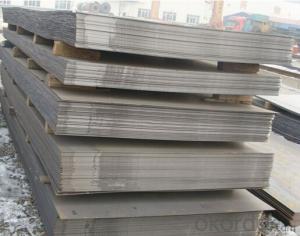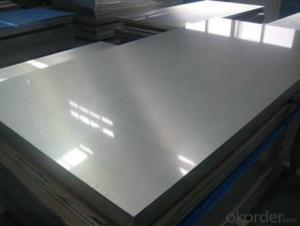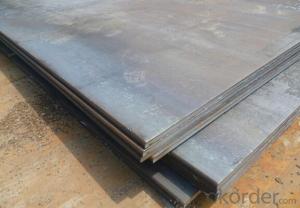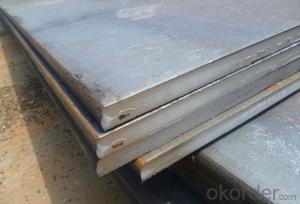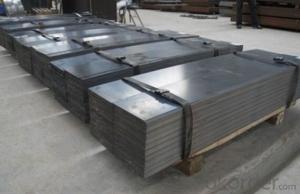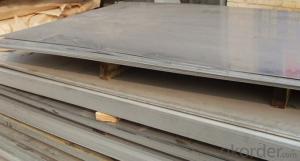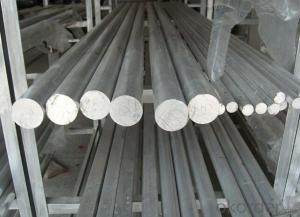Grade Z40-Z280 Galvanized Steel Sheet Plate with Low Prices
- Loading Port:
- Tianjin
- Payment Terms:
- TT OR LC
- Min Order Qty:
- 5 m.t.
- Supply Capability:
- 10000 m.t./month
OKorder Service Pledge
OKorder Financial Service
You Might Also Like
Item specifice
Grade Z40-Z280 Galvanized Steel Sheet Plate with Low Prices
Grade Z40-Z280 Galvanized Steel Sheet Plate with Low Prices
| goods | Hot dip galvanized steel coil and sheet |
| Technical Standard: | JIS 3302 / ASTM A653 / EN10143/EN10327 |
| Grade | DX51D / DX52D/ DX53D/ S250,280,320GD |
| Width | 500/650/726/820/914/1000/1200/1219/1220/1250mm |
| Thickness | 0.17-1.6mm (0.25-0.45mm is the most advantage thickness) |
| Type of coating: | galvanized |
| Zinc coating | Z60-120g/m2 |
| Surface treatment | chromed / skin pass/ oiled /un oiled /slightly oiled/ dry |
| Surface structure: | zero spangle / minimized spangle / regular spangle/ big spangle |
| MOQ | 5 Tons |
| Package: | Properly packed for ocean freight exportation in 20''containers |
| Price terms | FOB,CFR,CIF,CPT.CNF,CIP |
| Payment terms | 30%TT in advance+70% TT or irrevocable 70%L/C at sight |
| delivery time | 7days after receipt of 30% TT |
Grade Z40-Z280 Galvanized Steel Sheet Plate with Low Prices
| Material | Tensile test | ||||||
| Rel | Rm (MPa) | Elongation | |||||
| (MPa) | 1.8~<2.0< span=""> | 2.0~<2.5< span=""> | 2.5~<3.2< span=""> | 3.2~<4.0< span=""> | ≥4.0 | ||
| SPHC | ≥270 | ≥29 | ≥30 | ≥31 | ≥32 | ≥32 | |
| SPHD | ≥270 | ≥32 | ≥33 | ≥35 | ≥37 | ≥39 | |
| SPHE | ≥270 | ≥33 | ≥35 | ≥37 | ≥39 | ≥41 | |
| SS330 | ≥205 | 330~430 | ≥26 | ||||
| SS400 | ≥245 | 400~510 | ≥24 | ||||
| SAPH370 | ≥370 | ≥255 | ≥32 | ||||
Grade Z40-Z280 Galvanized Steel Sheet Plate with Low Prices
CNBM International Corporation is the most import and export platform of CNBM group(China National Building Material Group Corporation) ,which is a state-owned enterprise, ranked in 270th of Fortune Global 500 in 2015.
With its advantages, CNBM International are mainly concentrate on Cement, Glass, Iron and Steel, Ceramics industries and devotes herself for supplying high quality series of refractories as well as technical consultancies and logistics solution.
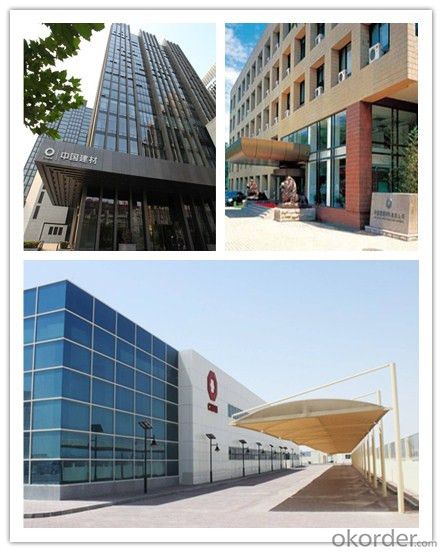
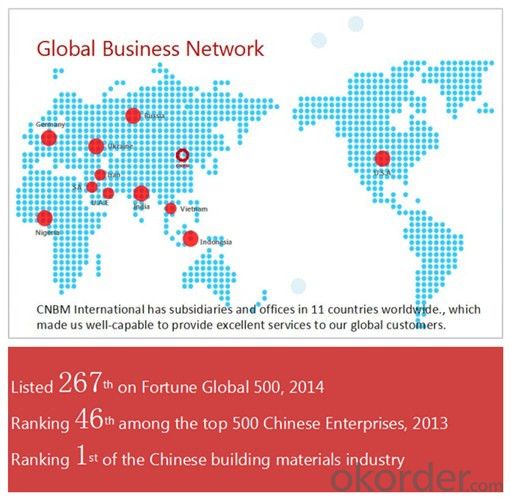
Grade Z40-Z280 Galvanized Steel Sheet Plate with Low Prices
Packaging Detail | Sea worthy packing /as per customer's packing instruction |
Delivery Detail | 15 ~ 40 days after receiving the deposit |
Products Show
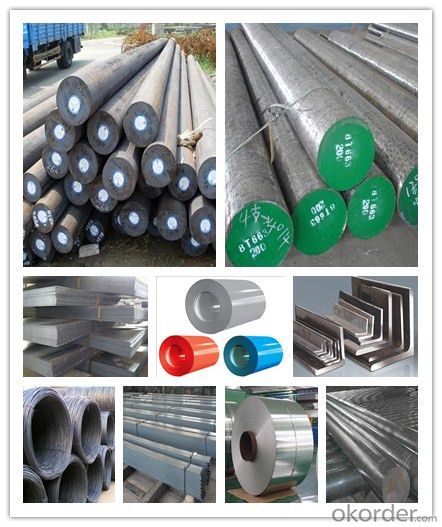
FAQ:
Are you a trading company or manufacturer? | Manufacturer |
What’s the MOQ? | 3 metric ton |
What’s your delivery time? | 15-35 days after downpayment received |
Do you Accept OEM service? | Yes |
what’s your delivery terms? | FOB/CFR/CIF |
What's the Payment Terms? | 30% as deposit,70% before shipment by T/T |
Western Union acceptable for small amount. | |
L/C acceptable for large amount. | |
Scrow ,Paybal,Alipay are also ok | |
Why choose us? | Chose happens because of quality, then price, We can give you both. Additionally, we can also offer professional products inquiry, products knowledge train (for agents), smooth goods delivery, excellent customer solution proposals. |
What's your available port of Shipment? | Main Port, China |
What’s your featured services? | Our service formula: good quality+ good price+ good service=customer's trust
|
Where are your Market? | Covering more than 160 countries in the world |
- Q:What are the disadvantages of using special steel?
- There are a few disadvantages of using special steel. Firstly, it tends to be more expensive than regular steel due to its higher quality and specific properties. Additionally, special steel may be more difficult to source, making it less readily available for certain applications. Another drawback is that special steel often requires specialized knowledge and expertise for its proper handling and processing, which can increase production costs and complexities. Finally, special steel may have limited availability in certain grades or sizes, which can pose challenges for projects requiring specific specifications.
- Q:What are the most common alloys used in special steel?
- The most common alloys used in special steel are chromium, nickel, molybdenum, and vanadium.
- Q:What are the different powder coating techniques used for special steel?
- There are several powder coating techniques used for special steel, including electrostatic spray, fluidized bed, and flame spraying. Each technique offers unique advantages and is chosen based on factors such as the desired coating thickness, complexity of the surface, and specific properties required for the steel's functionality.
- Q:How is special steel produced?
- Special steel is produced through a meticulous process known as alloying, where different metals are combined with iron to enhance its properties. The alloying elements are carefully selected and added to molten iron, followed by precise temperature control and cooling to form the desired steel composition. This process ensures that special steel possesses superior strength, hardness, corrosion resistance, and other unique characteristics required for specialized applications.
- Q:What are the different molding grades of special steel?
- The different molding grades of special steel include tool steel, stainless steel, high-speed steel, and alloy steel.
- Q:How is special steel used in the food processing industry?
- Special steel is commonly used in the food processing industry due to its unique properties such as corrosion resistance and high strength. It is used to manufacture various equipment and components such as knives, blades, cutting tools, mixing machines, and conveyor belts. These specialized steel products ensure food safety, improve processing efficiency, and maintain high hygiene standards in the industry.
- Q:How does molybdenum improve the performance of special steel?
- Due to its unique properties and characteristics, molybdenum is crucial in enhancing the performance of special steel. Its role is multi-faceted and includes improving strength and toughness, increasing hardenability, enhancing corrosion resistance, and improving high-temperature strength and creep resistance. One of the primary benefits of molybdenum is its ability to significantly improve the strength and toughness of steel, making it more durable and resistant to deformation. This is achieved by forming a solid solution with iron, resulting in a fine-grained microstructure and reducing the formation of brittle phases in the steel. Another advantage of molybdenum is its impact on the hardenability of steel. It allows the steel to be heat-treated to achieve the desired mechanical properties. This is particularly important in the production of special steel, where high strength, wear resistance, and thermal stability are often required. By enabling effective heat treatment, molybdenum ensures that the steel can be processed to meet specific performance requirements, such as hardness, toughness, and dimensional stability. Moreover, molybdenum enhances the corrosion resistance of special steel, making it suitable for challenging environments. It forms a protective oxide layer on the steel's surface, acting as a barrier against corrosive substances like acids, alkalis, and salts. This corrosion resistance is crucial in applications where the steel is exposed to harsh conditions, such as marine environments, chemical processing plants, and oil and gas industries. Furthermore, molybdenum improves the high-temperature strength and creep resistance of special steel. It enables the steel to maintain its mechanical properties even at elevated temperatures, making it suitable for applications where the steel is subject to prolonged exposure to heat or mechanical stress. In conclusion, molybdenum plays a vital role in enhancing the performance of special steel by improving its strength, toughness, hardenability, corrosion resistance, and high-temperature properties. These attributes make molybdenum an essential alloying element in the production of special steel for various industries, including automotive, aerospace, energy, and tool manufacturing.
- Q:What are the different forging techniques for special steel?
- There are several different forging techniques that can be used for special steel, depending on the desired properties and characteristics of the final product. Some of the most common forging techniques for special steel include: 1. Open-die forging: Also known as smith forging or hand forging, this technique involves shaping the steel between two flat dies or anvils. The metal is repeatedly heated and hammered until it takes the desired shape. Open-die forging is often used for larger and more complex components, such as shafts, cylinders, or discs. 2. Closed-die forging: Also called impression-die forging, this technique involves shaping the steel within a set of dies that contain the desired shape. The metal is placed between the dies and compressed under high pressure. Closed-die forging is often used for smaller, more intricate components, and it allows for greater control over the final shape and dimensions. 3. Roll forging: In this technique, the steel is passed between two or more rotating rolls to shape it. The rolls exert pressure on the metal, causing it to deform and take the desired shape. Roll forging is commonly used to produce long, cylindrical components such as axles, bars, or rings. 4. Upset forging: This technique involves deforming the steel by reducing its length and increasing its cross-sectional area. The metal is placed between two dies and compressed axially, causing it to bulge and take the desired shape. Upset forging is often used to produce short, thick components such as bolts, screws, or nuts. 5. Press forging: Similar to closed-die forging, press forging uses a hydraulic or mechanical press to shape the steel. The metal is placed between two dies and compressed under high pressure, resulting in a controlled deformation. Press forging allows for precise control over the shaping process and is often used for producing high-quality and complex components. Each of these forging techniques has its own advantages and limitations, and the choice of technique depends on factors such as the size, complexity, and desired properties of the final product. By selecting the appropriate forging technique, manufacturers can ensure that special steel components meet the required specifications and performance standards.
- Q:What are the challenges in working with special steel?
- Working with special steel can present various challenges due to its unique properties. One major challenge is its high hardness, which makes it more difficult to machine, shape, and weld compared to regular steel. Special steel also tends to have lower thermal conductivity, making it more susceptible to heat damage during cutting or grinding processes. Additionally, special steel alloys often have strict composition requirements, meaning precise control over the manufacturing process is necessary to achieve the desired material properties. Overall, the challenges in working with special steel primarily revolve around its hardness, thermal properties, and the need for precise manufacturing techniques.
- Q:How does special steel contribute to the manufacturing of oil and gas equipment?
- Special steel plays a crucial role in the manufacturing of oil and gas equipment due to its unique properties and characteristics that make it suitable for the demanding conditions of the industry. Firstly, special steel is known for its high strength and durability, which is essential in the production of oil and gas equipment. Equipment such as drilling rigs, pipelines, and storage tanks are subjected to extreme pressures, corrosive environments, and harsh weather conditions. Special steel, with its superior mechanical properties, can withstand these conditions and ensure the reliable and long-lasting performance of the equipment. Additionally, special steel offers excellent resistance to corrosion and oxidation, which are prevalent in the oil and gas industry. The presence of corrosive substances and the exposure to high temperatures can cause regular steel to deteriorate quickly. However, special steel is specifically designed to resist corrosion, ensuring that the equipment remains functional and safe for use over its lifetime. Furthermore, special steel can withstand high temperatures and pressure differentials, making it suitable for applications such as heat exchangers and pressure vessels. These components are vital in various oil and gas processes, including refining and transportation. The ability of special steel to handle extreme temperatures and pressures ensures the efficiency and safety of these operations. Special steel also contributes to the manufacturing of oil and gas equipment by providing excellent weldability and machinability. This allows for ease of fabrication and assembly, reducing production time and costs. The versatility of special steel enables manufacturers to design and create complex equipment that meets the specific requirements of the oil and gas industry. In conclusion, special steel plays a crucial role in the manufacturing of oil and gas equipment by providing high strength, durability, corrosion resistance, and the ability to withstand extreme temperatures and pressures. Its unique properties ensure the reliability, safety, and longevity of the equipment, making it an indispensable material in the oil and gas industry.
1. Manufacturer Overview |
|
|---|---|
| Location | |
| Year Established | |
| Annual Output Value | |
| Main Markets | |
| Company Certifications | |
2. Manufacturer Certificates |
|
|---|---|
| a) Certification Name | |
| Range | |
| Reference | |
| Validity Period | |
3. Manufacturer Capability |
|
|---|---|
| a)Trade Capacity | |
| Nearest Port | |
| Export Percentage | |
| No.of Employees in Trade Department | |
| Language Spoken: | |
| b)Factory Information | |
| Factory Size: | |
| No. of Production Lines | |
| Contract Manufacturing | |
| Product Price Range | |
Send your message to us
Grade Z40-Z280 Galvanized Steel Sheet Plate with Low Prices
- Loading Port:
- Tianjin
- Payment Terms:
- TT OR LC
- Min Order Qty:
- 5 m.t.
- Supply Capability:
- 10000 m.t./month
OKorder Service Pledge
OKorder Financial Service
Similar products
New products
Hot products
Hot Searches
Related keywords
